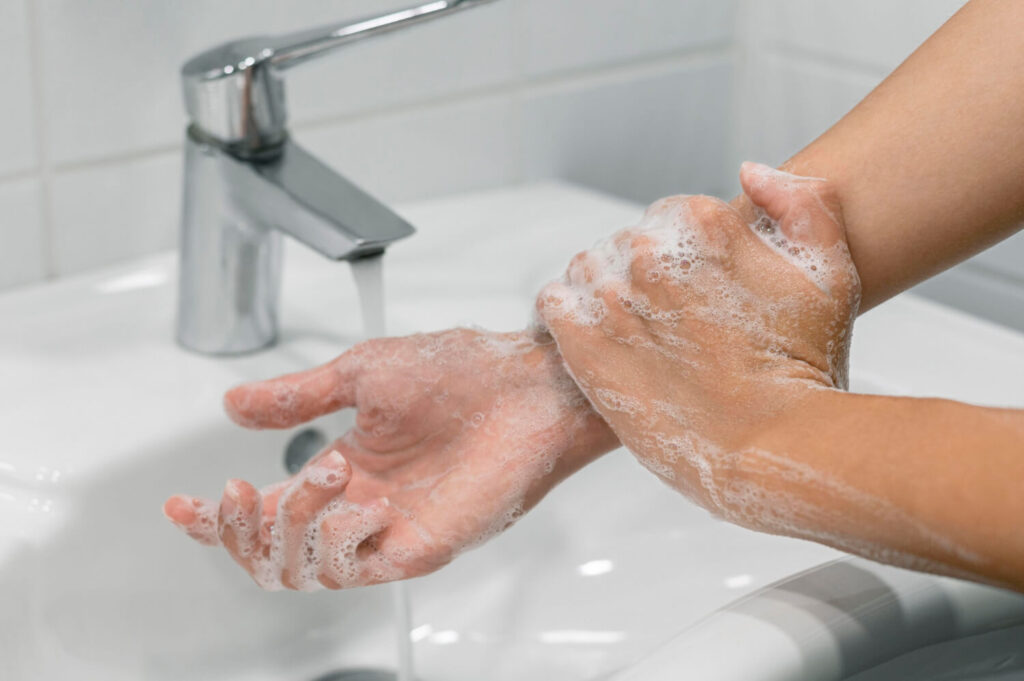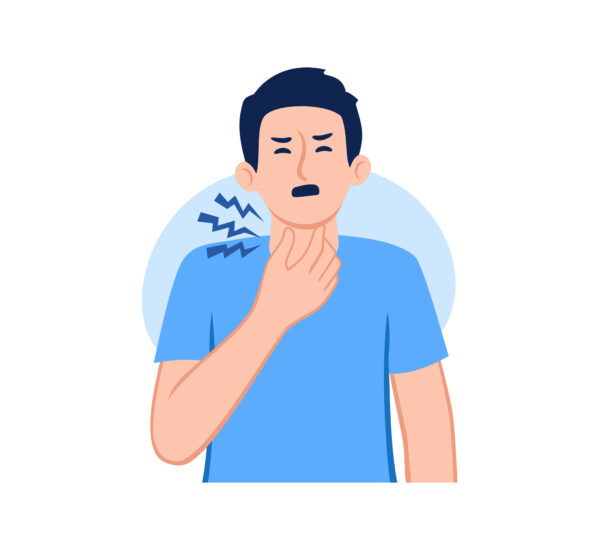One of the key concerns with strep throat is the potential for complications if left untreated. Strep throat or acute pharyngitis can cause severe inflammation and a sore throat, making it uncomfortable and painful for those who experience it. Thus, finding the suitable strep throat treatment is a must to avoid developing such health risks.
Fortunately, there are effective treatment strategies for strep throat that can provide relief and prevent complications. Timely diagnosis and treatment are crucial in managing strep throat and reducing the risk of complications. This blog will explore the various treatment options for strep throat, including conventional treatments, home remedies, and preventive measures.
How Strep Throat Can Affect Oral Health

Strep throat can have an impact on oral health, particularly the health of the throat and tonsils. The infection is caused by the streptococcus bacteria, which can lead to severe inflammation and irritation in the throat and tonsils. If left untreated, it can result in conditions that can impact and damage the body further.
Here are some of the conditions that may arise due to strep throat:
Rheumatic Fever
Rheumatic fever, a disease that can cause permanent damage to the heart and heart valves, and scarlet fever, characterized by a red rash and high fever, are two of the most serious complications that can arise from untreated strep throat.
Peritonsillar Abscess
It is an abscess near the tonsils, and other serious infections. This condition involves an accumulation of pus near the tonsils, and requires immediate medical attention to prevent further spread of infection.
Tonsillitis
Meanwhile, tonsillitis is a common complication of strep throat, characterized by inflammation and swelling of the tonsils due to an infection. It is basically described as a swollen and inflamed mass at the back of the throat, which can be painful.
It is important to seek medical attention if you suspect you have strep throat. A healthcare provider can perform quality care services to combat the condition and provide suitable strep throat treatment.
When to Seek Medical Attention
As mentioned, strep throat can be a threat to one’s oral health. It can result in several possible illnesses if left untreated. That’s why if you notice constant discomfort and rising inconvenience throughout, it’s a definite sign that you should seek immediate help.

Furthermore, disregarding the condition can lead to more health consequences, which acts as alarming symptoms of strep throat. Here are some of the notable signs to monitor:
- Severe sore throat
- Fever
- Swollen lymph nodes
- White patches or pus
- Difficulty breathing or swallowing
- Persistent symptoms
It is important to remember that self-diagnosis and self-medication are not recommended for strep throat. If these symptoms persist, the patient must seek help from a health expert to alleviate symptoms and prevent potential complications.
Conventional Treatment Options
When dealing with the strep infection, it is important to know the possible strep throat treatment options to increase your chance of successfully combating the condition. Among the recommended forms of treatments are usage of antibiotics and pain medications.
Let’s identify these medications below!

Antibiotics for Strep Throat
In terms of addressing strep throat, one of the prescribed medications by the doctor is antibiotics. Some of the effective antibiotics are penicillin or amoxicillin. It effectively combats the bacterial infection caused by streptococcus bacteria.
Take note that it’s crucial to complete the full course to prevent recurrence or complications. Always follow your healthcare provider’s guidance when taking antibiotics.
Pain Relievers and Their Role
On the other hand, pain relievers play a crucial role in alleviating discomfort and managing symptoms. Medications like acetaminophen, aspirin, or ibuprofen can help reduce throat pain, fever, and inflammation associated with the infection.
While these pain relievers can provide much-needed relief, it is best to follow the recommended dosage when taking them. Thus, allowing a speedier recovery process.
Home Remedies and Care Strategies
Aside from the conventional strep throat treatment options, it is also possible to combat the alarming symptoms of this oral condition with home remedies. Using such a type of strategy allows the patient to explore more options, rather than just relying on medications. This option is suitable for patients that don’t have access to health centers and doctor consultations. Thus, helping them to still achieve healing.
Even though some home remedies can be effective, it can only provide temporary relief. In short, possible consequences can still arise, especially if the chosen remedy is not a suitable treatment method for your strep throat.

Nevertheless, there’s no harm in exploring treatment options. Here are some of the home remedies you can try:
- Drink warm liquids like tea can ease throat discomfort
- Gargle with salt water to help reduce reduce inflammation
- Hydrate and rest to recover, and increase body’s healing process
- Consume soft yet healthy foods to promote better nutrition while managing symptoms
Please take note that while these remedies can provide relief, it won’t prevent the progression of the condition. It is still important to consult a doctor to examine your condition through rapid strep test, throat culture, swab test, etc.
The Role of Diet in Recovery
In terms of diet and nutrition, this aspect also plays a crucial role in recovering from strep throat. There are specific foods that can be ideal for patients suffering from this oral condition. That includes warm soups, smoothies, and warm beverages. At the same time, consuming foods rich in vitamins and minerals are also great as they can support the immune system during recovery.
Meanwhile, patients must steer clear of irritants that can exacerbate throat inflammation and hinder healing. That can involve spicy foods, hard foods, acidic foods or beverages, and etc. Eating these items can irritate the throat further, leading to inflammation and pain.
Remember, a balanced diet can expedite recovery and promote overall well-being, helping you bounce back from strep throat more effectively. So, it’s best to choose the food and beverage you’ll consume for an improved throat health.
Supplements That Can Help
Considering the recovery from strep throat, incorporating suitable supplements can be beneficial. These supplements can help boost the immune system, which helps to combat the infection. Furthermore, it can help with the healing process, which happens due to the beneficial properties from the supplements.
Here are some of the supplements patients can take:
- vitamin c
- zinc
- probiotics
Additionally, echinacea is recognized for its benefits against infection. Despite that, it is still essential to consult a doctor before consuming this type of supplement, especially if it can promote a faster and more robust recuperation.
Preventing Strep Throat Recurrence

Dealing with strep throat doesn’t end with following the strep throat treatment options. Patients must also be aware of how to manage their overall health to prevent the recurrence of the condition.
Maintaining good hygiene practices and strengthening immunity are key in preventing strep throat recurrence. Simple habits like regularly washing hands, avoiding close contact with infected individuals, and disinfecting personal items can help minimize the spread of strep bacteria.
Additionally, ensuring a balanced diet rich in vitamins and minerals can boost overall health and immunity. Thus, reducing the likelihood of recurrent infections. By adopting these preventive measures, individuals can significantly lower their risk of experiencing repeated episodes of strep throat.
Furthermore, if you notice that symptoms of strep throat are present, the best way to go is to secure one’s health by visiting a doctor. That way, the expert can help manage the condition and prevent the recurrence in the future.
Frequently Asked Questions
Can Strep Throat Be Prevented?
Yes, strep throat is a result of a bacterial infection, which means streptococcus pyogenes practice of good hygiene can help avoid developing the condition. Individuals can also strengthen their immune system to not be infected by such bacterial infection.
At the same time, avoiding close contact with infected persons can be a suitable strategy to not have strep throat. That also includes not using the same utensils as those people with the condition.
How Long Does Recovery Take?
Recovery from strep throat usually takes about 3 to 7 days with proper treatment. However, individual recovery times may vary based on overall health and adherence to treatment plans. Adequate rest, hydration, and following medical advice can help speed up the recovery process.
Final Takeaway
Timely intervention is an important factor when it comes to dealing with strep throat conditions. With the well curated strep throat treatment options, the patient can be one step ahead towards a healthier throat health. Whether opting for conventional treatment or home remedies, the goal is to alleviate symptoms and support recovery.
So, if you think you might be suffering from strep throat, maybe it’s time to take a step towards managing the condition effectively. Remember, seeking medical attention when needed is always a wise decision to ensure your oral health and overall well-being.
Strep Throat Knowledge Quiz
Test your understanding of strep throat symptoms, treatment, and prevention
Quiz Complete!
Experiencing Strep Throat Symptoms?
Consult with a doctor online for proper diagnosis and treatment. Get antibiotics prescribed if needed.
Consult a Doctor Now

